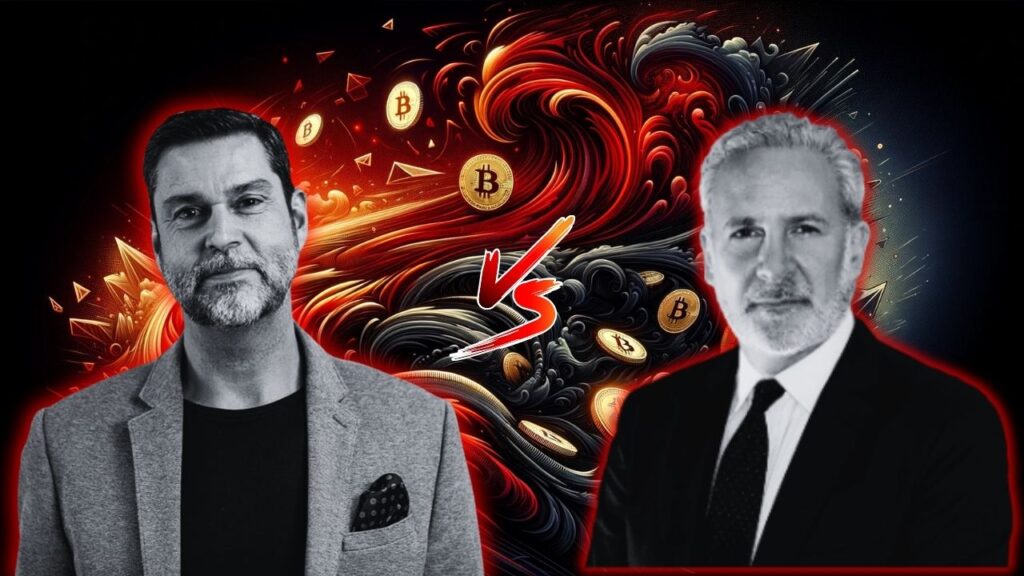
A Clash of Economic Worldviews
In a captivating dialogue, renowned investor Peter Schiff engaged in a debate with macro expert Raoul Pal regarding the value and future of Bitcoin amidst looming economic crises. Schiff, a persistent Bitcoin critic, argued that the cryptocurrency is a speculative bubble lacking intrinsic value or practical application. He maintained, “Bitcoin doesn’t have anything that anybody uses for anything. As long as people want to gamble on it, there’s a price. But people don’t have to buy gold for money. There’s always going to be people who need gold in industry who are going to be buying it.”
Pal countered this viewpoint by emphasizing the significant value of Bitcoin in a digital era, driven by its scarcity and “digital gold” attributes. He asserted that Bitcoin is “the best performing asset the world has ever seen,” underlining that in a world of digital abundance, scarcity becomes invaluable. Pal remarked on the tendency of those successful with Bitcoin to continue leveraging it, highlighting the asset’s unprecedented rise.
Inflation, Debt, and Economic Armageddon
Both debaters expressed concern over escalating debt levels and the debasement of currency. Schiff agreed that inflation poses a major issue, describing it as a “hidden tax” facilitated by political paths of least resistance. However, he dismissed Bitcoin as a remedy, advocating for gold as the supreme safe haven. Schiff argued for the possession of gold and other tangible assets as hedges against inflation.
Pal, on the other hand, viewed Bitcoin as a vital “life raft” amidst economic turmoil. Acknowledging the dire state of economic affairs, he proposed that Bitcoin, along with gold and tech stocks, could serve as means to navigate through the significant transitions ahead. He anticipated further financial repression and monetary expansion by governments but remained hopeful that innovation could offer a way out.
The discussion expanded to the existential implications of a total collapse of the US dollar. Schiff portrayed a grim scenario of widespread distress and a drift towards totalitarianism, cautioning against the blaming of capitalism and a shift towards total state control. Conversely, Pal was more optimistic, foreseeing a surge in economic growth driven by advancements in AI and robotics. He acknowledged the uncertainties of such a future but recognized it as full of opportunities.
A Pro-Bitcoin Tilt
While both viewpoints were explored, the debate subtly leaned towards favoring the potential of Bitcoin. Pal’s arguments, highlighting Bitcoin’s alignment with the digital age and its macroeconomic and societal benefits, were presented more prominently than Schiff’s steadfast rejection based on the lack of tangible applications.
However, Schiff’s strong adherence to sound money principles and his caution against speculative bubbles presented a significant counterbalance. His unwavering skepticism of Bitcoin, despite sometimes bordering on pessimism, underscored a profound commitment to traditional financial safety nets.
The exchange between Schiff and Pal shed light on complex economic issues, offering the audience a comprehensive framework for understanding the challenges and opportunities of the current era. This discussion of our economic future, regardless of one’s stance, opens up new avenues of thought and underscores the importance of questioning established beliefs. As Pal suggested, “We need to ask ourselves: why do we think what we think?”
Thank you for reading “Schiff vs. Pal: The Great Bitcoin Debate“.
- Subscribe to our newsletter: ConsensusProtocol.org
- Follow us on Twitter: @ConsensusPro
Sources:




